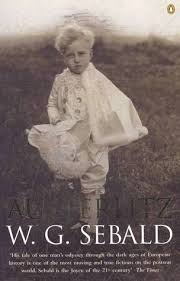Junctions of Memory, Identity and Loss
Slavkov u Brna is a small town in the Czech Republic. Centuries ago, it was known as Austerlitz. In 1805, one of the most important battles of modern Europe took place there, with Napoleon’s Army defeating the Prussians and the Russians. To commemorate this historic victory, the French named one of its large Parisian railroad stations Gare D’Austerlitz. It’s a stop on the Parisian metro today. Austerlitz is a place, a station, a stop, and a battle. It is freighted with meaning, which is probably one of the reasons that it is also the title and lead character is W.B. Sebald’s haunting novel, Austerlitz. 
Published in 2001, Austerlitz was immediately recognized as a significant work. Garnering several awards and prizes, it was also an inspiration for a movie. Sebald died shortly after the book’s publication. He was considered an important writer at the time of his untimely death. Sebald’s reputation has not waned and he remains popular today. He writes literature worthy of time, consideration and reflection.
The story of Austerlitz is recounted through a narrator who talks with the title character over many years. Their friendship serves as a vehicle for Austerlitz to recount his search for his identity. Raised by a cold Welsh family, Austerlitz was a child refugee from Czechoslovakia during the early years of World War II. Austerlitz gradually learns of his parents, his history, and himself. The themes are of loss and identity, but much more happens. We think about meaning, empathy, and the consequences of choice and contingency. It is a magically layered work, with streams of knowing and not-knowing strung together in an evocative web. Photos are sprinkled through the text. It has enough authenticity to read like non-fiction; I wondered, while reading it, where Sebald did his research. There is tremendous integrity in the work.
I found reading an overwhelming experience, emotional and intellectual. The details are compelling. The prose – often strung together at lengthy, building on itself and creating a cloud of observation, memory and questions, is mesmerizing. Sebald’s book offers a way to think about the Holocaust that is both global and individual, judgmental and compassionate. I was moved by the book in unexpected ways; it haunts me. Austerlitz is an extraordinary novel.
David Potash